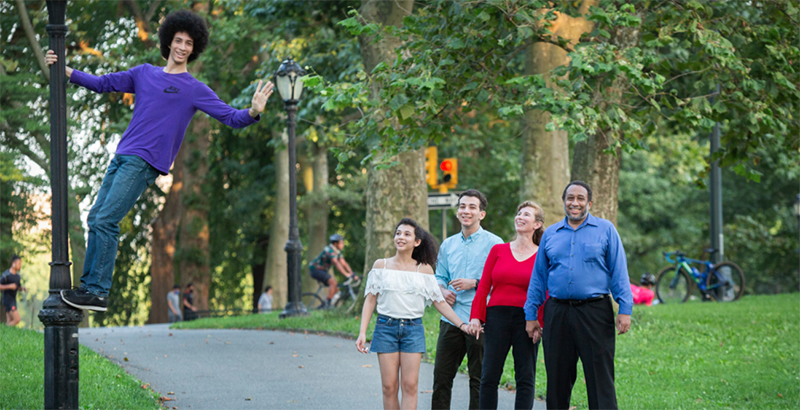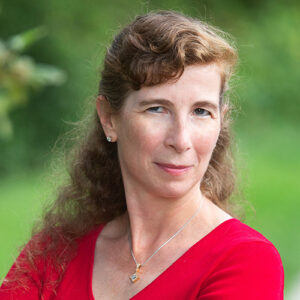Adams: I Don’t Know Where My Son Is Applying to College. And That’s (Kind of) OK With Me

Get stories like these delivered straight to your inbox. Sign up for The 74 Newsletter
A version of this essay appeared on the New York School Talk blog
When my oldest son was applying to college five years ago, he kept me posted every step of the way. Mostly because he kept asking for my debit card to pay various application fees. I also read many, many — many! — drafts of his essay, to the point where we still quote excerpts to each other.
His younger brother, who is applying this year, is taking a different tack. I know nothing.
“So who’s paying his application fees?” friends ask.
He’s paying them himself.
The few tidbits I’ve picked up so far:
- All Ivy League universities are off the table. (His brother attends an Ivy League school. Ergo, by the transitive property of equality, they are unacceptable.)
- Even though this is a kid who has been working professionally as a computer programmer since he was 12 years old (which is how he can afford to pay his own application fees) and who purchased The Feynman Lectures on Physics to read for fun, Massachusetts Institute of Technology is out, too. (His father went there, ergo, see above.)
So where is he applying?
I have no idea.
And that’s (kind of) OK with me. Here’s why:
This is a boy who has always marched to the beat of his own drummer. The one who, when an Advanced Placement exam conflicted with a scheduled dance performance, chose the latter and reminded me, “It’s the learning that matters, not the grade.”
The one who dropped out of Stuyvesant High School because he wasn’t allowed to take the classes he wanted to take at the speed he wanted to take them.
When I gave in to his pleas to homeschool himself, my primary condition was that he would also do all the work himself: fill out paperwork, file the homeschooling plan, register for AP exams, put his transcript together and sign up to take his high school equivalency test — all without me lifting a finger.
So if I managed to be so hands-off with his homeschooling, why am I so anxious that he is applying to college all on his own?
Maybe it’s because I am bombarded daily with not just ads for SAT prep courses and college advisers, but with social media posts from fellow parents seeking the names of great tutors and essay writing specialists, asking for suggestions for what extracurriculars their children should be taking and what impressive community service they should be doing, and debating the merits of one school or program versus another.
Should I be doing something more for him? Should I be doing … anything?
The only information my husband and I gave our son was how much we were willing to pay for his college education (not more than we are paying for his brother’s). And advice that he apply for lots and lots of scholarships and merit aid. (We already went through heartbreak when he was accepted to college at age 14, but the school offered so little aid that we had to turn it down.) We are not taking out any student loans — no university is worth the published sticker price.
Beyond that, he could go wherever he liked.
Partially, that’s because, working in the education field — my husband is a teacher, I do … this — we believe college to be less important than high school, and high school to be less important than elementary school. The early grades are where you first learn to learn. It’s where you develop study habits and a work ethic. What you achieve in kindergarten through eighth grade depends on your teachers and your school. What you achieve after that is up to you.
I have no idea what my son has been studying for the past two years homeschooling in his room. But I do know some of what he has learned. He has learned to:
- Manage his own schedule
- Direct his own learning
- Deal with the endless New York city and state bureaucracy, as he detailed here
- Set goals, draw up a plan to meet them and carry that plan out, making adjustments along the way, as necessary
All those are much more vital life skills for an 18-year-old than anything an AP class or extracurricular activity/community service done solely for resume-enhancing purposes will provide.
I think.
I could be wrong.
This could still be a complete disaster. (I am a Soviet Jewish immigrant. I have no doubts that, at any moment, anything could still turn into a complete disaster.)
None of his homeschooling credits could be accepted anywhere. He could not get into any colleges. He could receive no financial aid. He could, as his father feared, end up a Black high school dropout without a college degree and only a GED for his trouble. They don’t tend to fare well in the outside world.
And yet, I have to believe that all the practical skills he learned after leaving Stuyvesant won’t allow that to happen.
That even if he meets unexpected obstacles, he will have the ability, the experience — and the confidence — to overcome them.
That where he ends up going to college ultimately matters a great deal less than who he is as a person, what he knows and what he can do. (“It’s the learning that matters, not the grade.”)
Or I could be wrong.
I’ve always been a “life experience is more important than classroom memorization” kind of person. My son used those precise words against me when making the argument for homeschooling.
Didn’t I want to practice what I preached?
Uhm … yes?
Uhm … no?
I do want my kids to be independent, I do want them to be self-directed, I do want them to forge their own paths and I do want them to make their own mistakes and to learn from them.
But is this how I want them to do it?
He’s only 18. Shouldn’t I be guiding him? Offering him the benefit of my life experience? A teenager’s frontal cortex is a notorious work in progress!
Yeah, I know all the research. Yeah, I know what the parenting message boards say.
Yeah … I’m still going to let him do it his way.
If everything goes according to plan — great!
If everything falls apart — it will be a valuable lesson learned.
If a decision he made junior year of high school ends up ruining his entire life … now, see, I don’t believe that. I’m a Soviet Jewish immigrant. I believe that in America there are always second chances. It’s why my family came here in the first place. (My African-American husband is a bit less sanguine on the matter, but even he ultimately agreed that there might be more than one path to success.)
Of course, we could both still be wrong …
Alina Adams is a New York Times best-selling romance and mystery writer, the author of Getting Into NYC Kindergarten and Getting Into NYC High School, a blogger at New York School Talk and mother of three. She believes you can’t have true school choice until all parents know all their school choices — and how to get them. Visit her website, www.NYCSchoolSecrets.com.
Get stories like these delivered straight to your inbox. Sign up for The 74 Newsletter

;)

